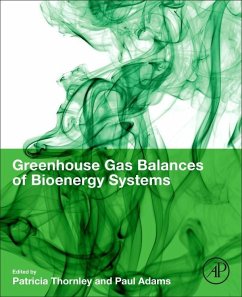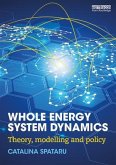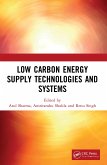Greenhouse Gases Balance of Bioenergy Systems covers every stage of a bioenergy system, from establishment to energy delivery, presenting a comprehensive, multidisciplinary overview of all the relevant issues and environmental risks. It also provides an understanding of how these can be practically managed to deliver sustainable greenhouse gas reductions.
Its expert chapter authors present readers to the methods used to determine the greenhouse gas balance of bioenergy systems, the data required and the significance of the results obtained. It also provides in-depth discussion of key issues and uncertainties, such as soil, agriculture, forestry, fuel conversion and emissions formation. Finally, international case studies examine typical GHG reduction levels for different systems and highlight best practices for bioenergy GHG mitigation.
For bringing together into one volume information from several different fields that was up until now scattered throughout many different sources, this book is ideal for researchers, graduate students and professionals coming into the bioenergy field, no matter their previous background. It will be particularly useful for bioenergy researchers seeking to calculate greenhouse gas balances for systems they are studying. I will also be an important resource for policy makers and energy analysts.
Uses a multidisciplinary approach to synthesize the diverse information that is required to competently execute GHG balances for bioenergy systems Presents an in-depth understanding of the science underpinning key issues and uncertainty in GHG assessments of bioenergy systems Includes case studies that examine ways to maximize the GHG reductions delivered by different bioenergy systems
Hinweis: Dieser Artikel kann nur an eine deutsche Lieferadresse ausgeliefert werden.
Its expert chapter authors present readers to the methods used to determine the greenhouse gas balance of bioenergy systems, the data required and the significance of the results obtained. It also provides in-depth discussion of key issues and uncertainties, such as soil, agriculture, forestry, fuel conversion and emissions formation. Finally, international case studies examine typical GHG reduction levels for different systems and highlight best practices for bioenergy GHG mitigation.
For bringing together into one volume information from several different fields that was up until now scattered throughout many different sources, this book is ideal for researchers, graduate students and professionals coming into the bioenergy field, no matter their previous background. It will be particularly useful for bioenergy researchers seeking to calculate greenhouse gas balances for systems they are studying. I will also be an important resource for policy makers and energy analysts.
Uses a multidisciplinary approach to synthesize the diverse information that is required to competently execute GHG balances for bioenergy systems Presents an in-depth understanding of the science underpinning key issues and uncertainty in GHG assessments of bioenergy systems Includes case studies that examine ways to maximize the GHG reductions delivered by different bioenergy systems
Hinweis: Dieser Artikel kann nur an eine deutsche Lieferadresse ausgeliefert werden.








